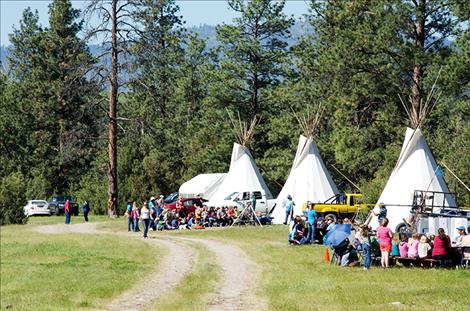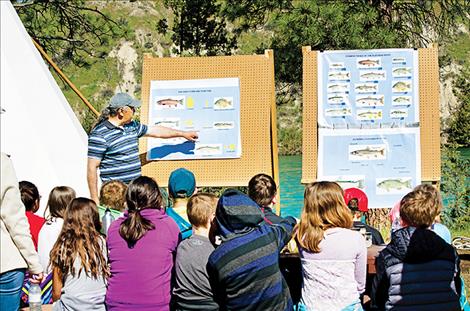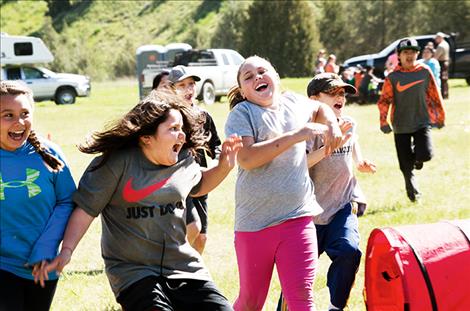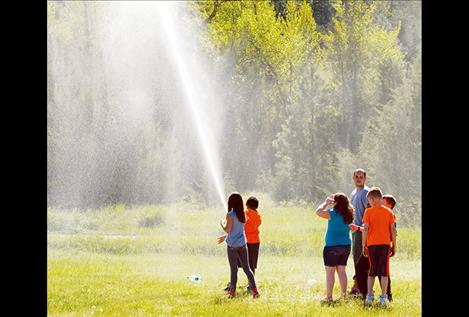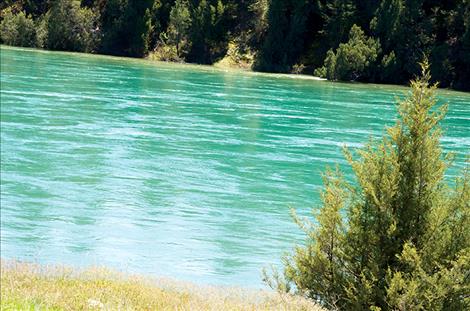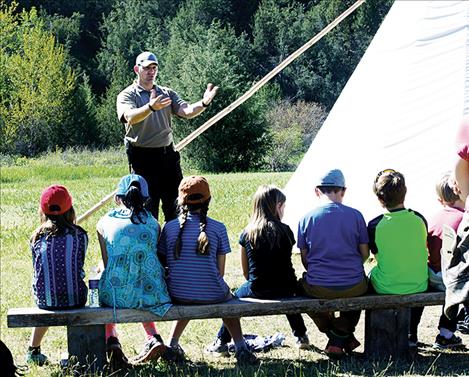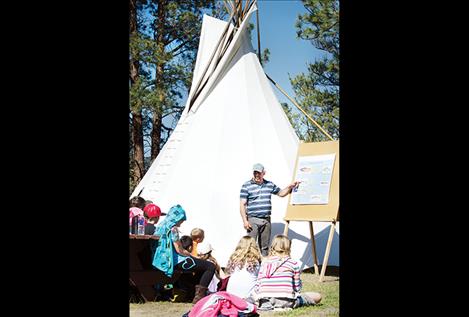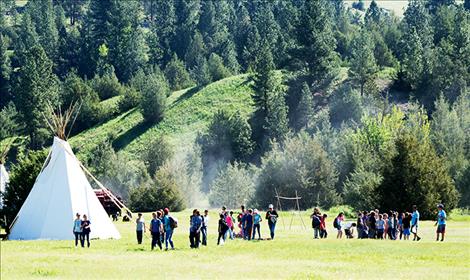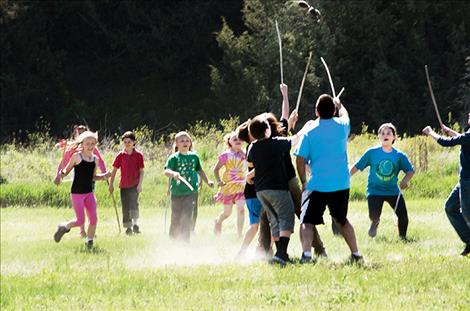Land use ethics, value of water taught in outdoor classroom
Hey savvy news reader! Thanks for choosing local.
You are now reading
1 of 3 free articles.
Hundreds of children in fourth and fifth grades from across the Flathead Indian Reservation stepped off their school buses to see the glistening Flathead River on May 9-10 at the Woodcock campsite.
The students were invited to an open spot along the river by the Confederated Salish and Kootenai Tribes to celebrate the 31st Annual River Honoring. Kids participated in dozens of activities including Native games, listened to stories from elders, and learned about many water-related topics. Different schools attended the event on each day.
George McLeod taught kids about water resources. Mountain Wahl and Joe Santos shared information about fish species. Paula Webster talked about protecting water from aquatic invasive species. The Mission Valley Backcountry Horsemen shared tips on wilderness safety and camping. The CSKT Division of Fire let kids see what it’s like to put out a fire using water hoses, although the mock fire wasn’t real. The CSKT Fish and Game talked about bear safety and much more.
“Kids come out here to see how beautiful the river is and hopefully they develop a sense of stewardship,” CSKT representative Germaine White said.
The tribe decided that directing education efforts about the river to focus on a younger audience would have the greatest potential for instilling land use ethics and a value for water.
“You don’t develop a sense of stewardship for something you don’t love, so we want kids to come see how beautiful the river is, and develop that sense of stewardship,” she said.
The overall message is focused on water.
“Water is not replaceable, and we can’t live without it. It is profoundly important to the tribes. We wanted to make learning about water and the environment fun for the kids with games and science,” she said. The students took a break from learning stations to play several games. Tristen Stokes, 10, of Pablo Elementary School stopped for a moment while he was having a lot of fun and learning different things.
Run and scream is a game of speed and stamina in which kids scream while running. When the scream is finished, they mark the place on the ground. Other kids have to try and pass each mark. The activity burns up a lot of energy and Tristen said it isn’t as easy as it sounds. The kids also played double ball and shinny in an open space along the river.
Mission Elementary School teachers Tim Krantz and Colleen Cordier were honored for their service to science during the event. Pat Hurley was also honored in memoriam for a dedication to science.
Documents given to teachers explained the importance of the Flathead River to the Pend d’Oreille, Salish and Kootenai people. The river was called the “the road to the west,” and it was used as a travel corridor for canoes for thousands of years. The river was also an important source of food and medicinal plants growing along the banks.
After Kerr Dam was built in the 1930s, CSKT has worked to keep additional dams from being built to protect the ecosystem.
CSKT Wildlands Recreation is asking people to help protect the Lower Flathead River. “Over 50 miles of the Lower Flathead River remain undeveloped, with no homes along the shoreline, few roads with little traffic, and acres upon acres of scenic free flowing river. Visitors will not see any ‘no trespassing’ signs. The landowners – the Confederated Salish and Kootenai Tribes – allow access not only to tribal members, but also to non-members who purchase a valid tribal recreation use permit.
“Continued public access to the river depends upon visitors treating this fragile landscape with respect. Only in this way can we maintain and improve both the health of the land and the purity of the waters. Unfortunately, in recent years, we have seen a dramatic increase in vandalism, illegal off road use, and excessive livestock grazing. These abuses often result in scars upon the land that can last for generations. We ask visitors to report to tribal authorities those who are violating the common-sense regulations that are in place to protect this resource for all visitors.”















